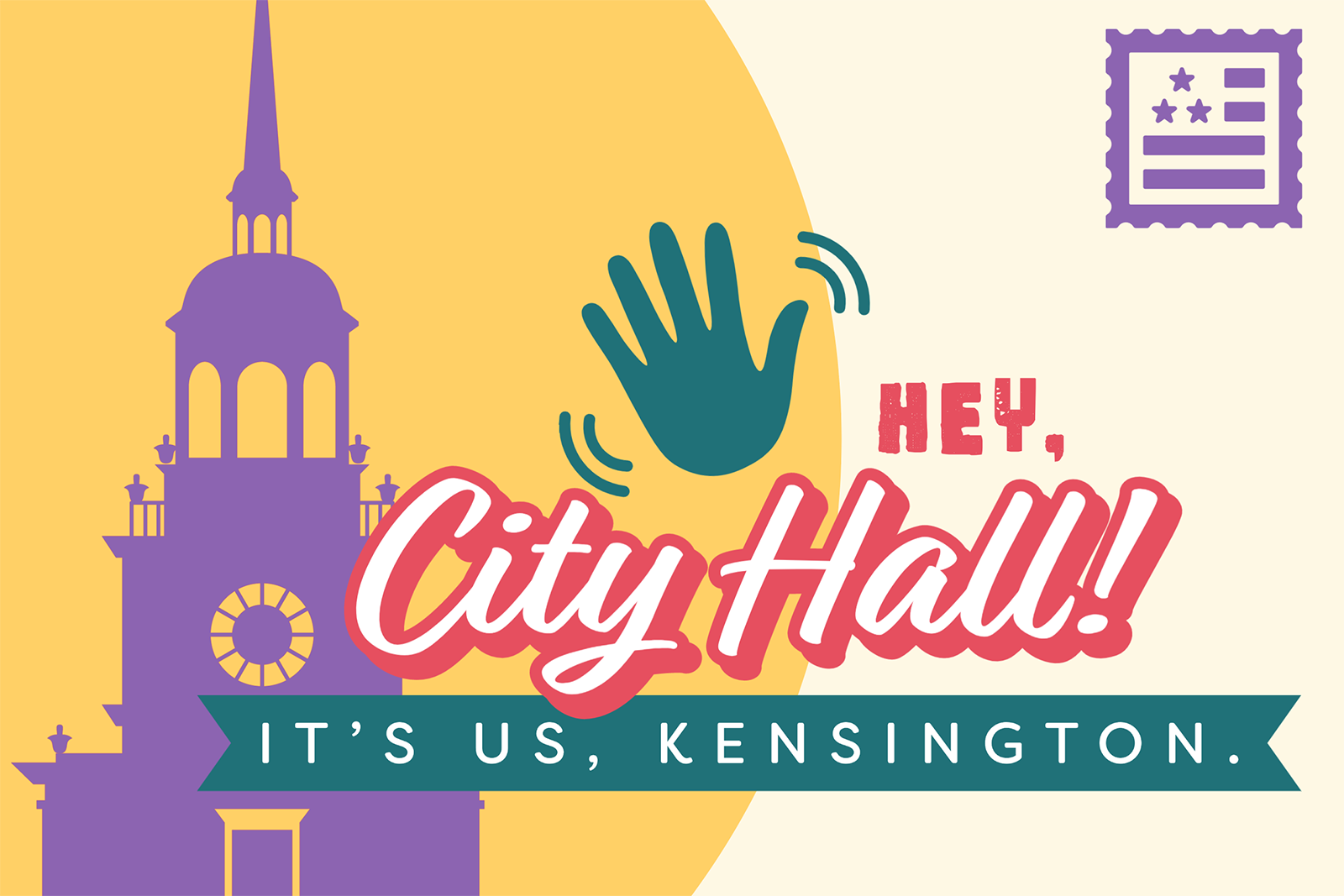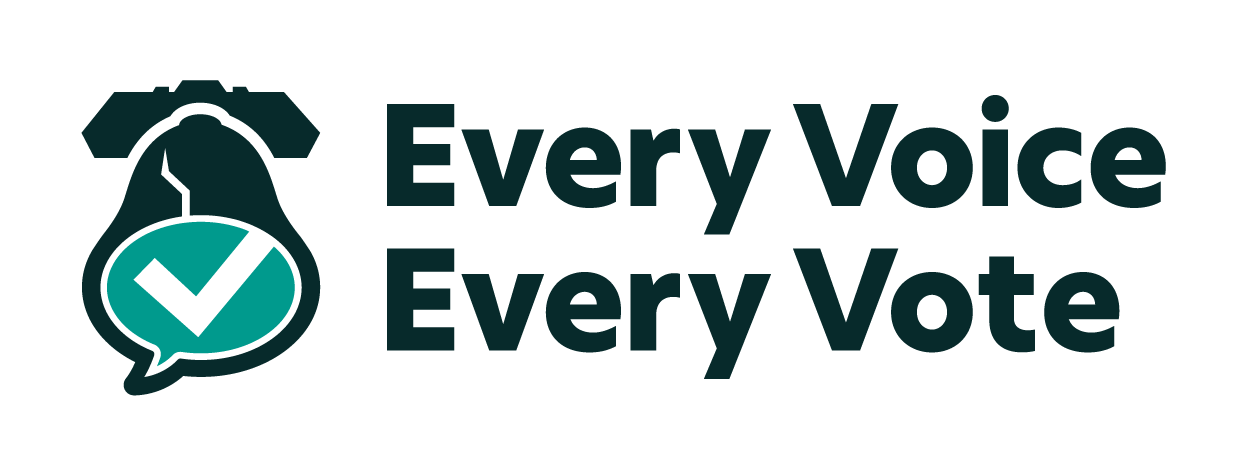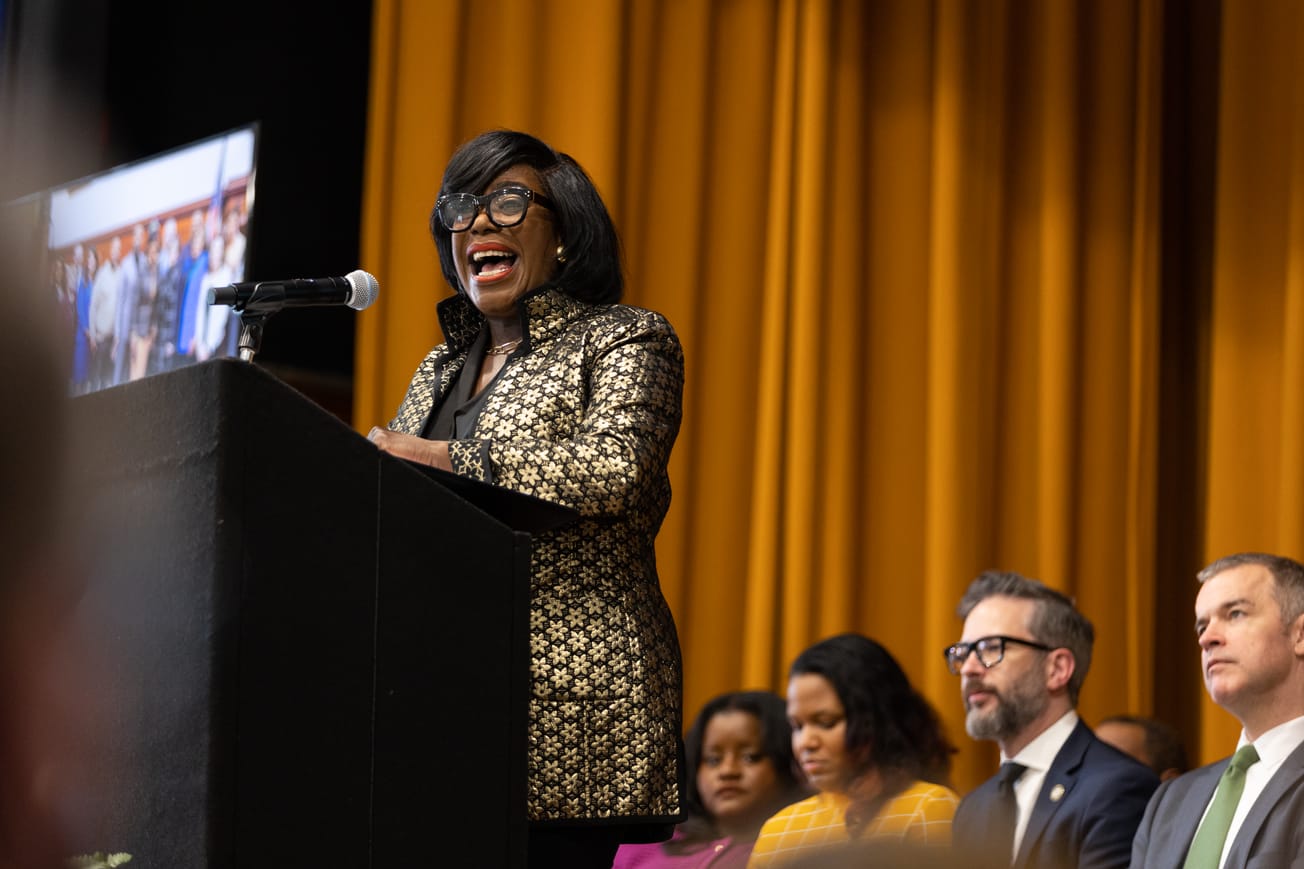
This story is part of our “Hey, City Hall! It’s us, Kensington” series. Do you have a question for Philly government? Our journalists are here to bring your questions to City Hall on your behalf. Just fill out this form, and we’ll get straight to work.
Updated 02/24
On Thursday, District 7 Councilmember Quetcy Lozada introduced four Kensington resolutions during this week’s City Council meeting.
One resolution allows the Council’s Committee on Public Safety to hold public hearings about the open-air drug market in Kensington. Another calls for a recovery plan to address the public health crisis in Kensington.
The other two resolutions honor the decades of work from the nonprofit organizations Impact Services and New Kensington Community Development Corporation (NKCDC).
City Council passed all of the resolutions. Lozada, who is running for reelection in the primaries this May, told Kensington Voice that the next step is to hold hearings and community meetings and then create the plan.
“We’re going to bring community residents together as well as the leadership of different city departments, and our counterparts at the federal and state level, to have an honest conversation about how we bring real relief to the residents of Kensington,” she said.
“[Community residents] have to be a part of the plan,” she added. “ … If they’re not a part of the plan from the very start, we won’t move the needle again.”
During the Council meeting, Lozada emphasized the need for accountability and community participation, which was missing from past plans. Listen to Lozada’s full speech below.
Five Kensington residents spoke in support of the resolutions for public safety hearings and the “Marshall Stabilization and Recovery Plan.”
Read more about the resolutions and listen to the residents’ public comments at the meeting below.
Quality of life resolutions
Kensington Public Safety Hearings
The resolution allows the Council’s Committee on Public Safety to hold public hearings to examine the open-air drug market and other barriers to clean, safe, crime-free streets in Kensington.
The resolution also highlights the neighborhood’s quality of life issues:
- Philadelphia’s opioid and overdose epidemic has affected the Council’s 7th District in Kensington for years.
- In 2022, over 25% of the city’s shootings took place in the 7th District.
- Hundreds of people who use drugs live on the streets of Kensington and the Conrail railroad tracks around the drug market.
- Kensington’s 24th Police District had the highest number of drug-related arrests last year, with nearly 40% of total arrests citywide.
- Lastly, there’s a cycle of trash and illegal dumping that residents and sanitation workers clean up.
Marshall Stabilization and Recovery Plan
The resolution calls for the City of Philadelphia to establish a “Marshall Stabilization and Recovery Plan” to tackle the crisis in Kensington, with inspiration from past legislation.
In 1948, United States President Harry Truman approved the Marshall Plan, a program that provided $13.3 billion to Western Europe to rebuild after World War II. Lozada’s resolution calls for a Philadelphia plan to invest in Kensington.
The resolution states that a variety of people should work together to address Kensington’s issues, including “City Council, Mayor Kenney, community stakeholders, anti-violence partners, rehabilitation centers, the Southeastern Pennsylvania Transportation Authority, Housing organizations, The Police Department, The Department of Public Health, The Department of Behavioral Health and disAbility Services, the District Attorney’s Office, and the Defender Association.”
The resolution also mentions that Kensington residents have faced disinvestment and blight for decades: “In order to have a prosperous Kensington, there must be clean SEPTA stops, those suffering from substance use disorder must be assisted, the homeless must be helped, crime must be addressed, and the violence must end.”
Community comments
Darlene Burton
Daisie Cardona*
Alfred Klosterman
Neyda Rios*
Jasmin Velez*
In response to the public comments, Lozada said they were hard to hear, but sometimes Councilmembers get so wrapped up in their own districts that neighborhoods like Kensington take a backseat.
“I’m grateful that each and every one of them came down today to tell us their stories,” she added.
*Editor’s Note: Daisie Cardona is the media lab manager at Kensington Voice. Neyda Rios and Jasmin Velez serve on Kensington Voice’s advisory board. None of them read or approved this story before publication.
Editors: Jillian Bauer-Reese Designer: Zari Tarazona

This content is a part of Every Voice, Every Vote, a collaborative project managed by The Lenfest Institute for Journalism. Lead support is provided by the William Penn Foundation with additional funding from The Lenfest Institute, Peter and Judy Leone, the John S. and James L. Knight Foundation, Harriet and Larry Weiss, and the Wyncote Foundation, among others. To learn more about the project and view a full list of supporters, visit www.everyvoice-everyvote.org. Editorial content is created independently of the project’s donors.





